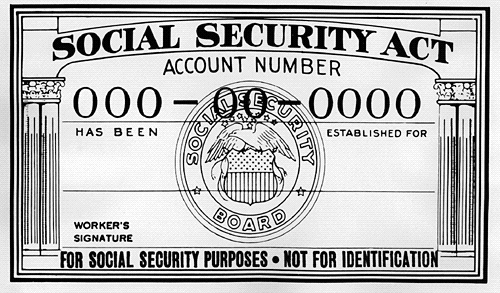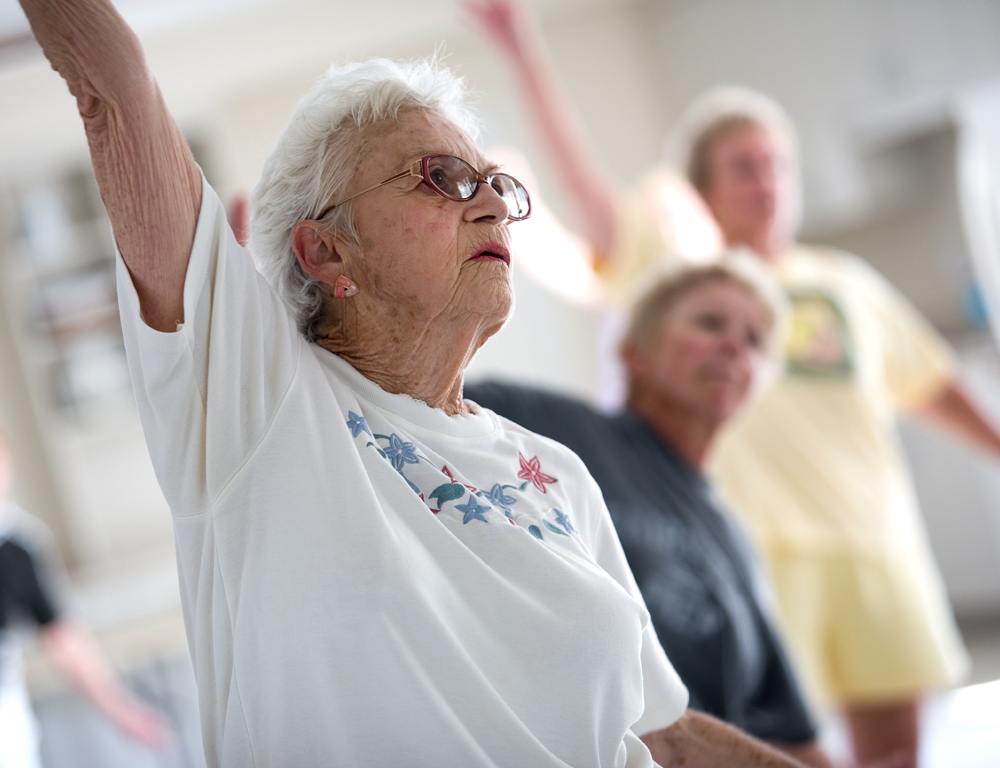Qualifying for Social Security Disability Benefits
Qualifying for Social Security Disability Benefits
(courtesy of Outreach Team at Disability Help – Eric Minghella)
If you or someone you love has a disability, financial assistance may be available. The Social Security Administration (SSA) offers monthly disability benefits for people in need. Social Security disability benefits are available for people of all ages, so whether you’re applying on behalf of yourself, your newborn child, or your elderly parent, there could be financial assistance available for everyone.
Programs Available for People with Disabilities
The SSA has two different forms of disability benefits. Medically qualifying for both programs is exactly the same, but each program has its own technical criteria.
Disability Insurance
Social Security Disability Insurance, or SSDI, is available for adults age 18-65. SSDI benefits are only available for people who have worked in the past, as it’s funded by SS taxes. The good news is that you do not need to have worked 40 hours per week throughout adulthood to qualify.
Most SSDI recipients have been diagnosed with an illness that abruptly takes them out of the workforce, such as cancer, a spinal cord injury, or other chronic illnesses. The average SSDI candidate receives around $1,200 per month, so keep in mind that SSDI will never replace the income you made while working. SSDI recipients are also eligible for Medicare 24 months after the date at which their condition “became disabling.” This is not necessarily the point at which you applied, but the date at which you were unable to work.
Supplemental Security Income
The second form of disability benefits is known as Supplemental Security Income, or SSI. These benefits do not have any work or age requirements, so your young child or elder parent may be eligible for SSI payments. SSI is for the most financially needy though, so many people are disqualified due to income limits, not medical reasons. An adult applying for SSI benefits cannot earn more than $735 per month to qualify, or have more than $2,000 in saved income or assets. If you’re married, the SSA will take your spouse’s income into consideration as well.
If you’re applying on behalf of a minor child, your income will be evaluated instead. While the limits are not as strict for children as they are for adults, most families earning more than $45,000-$50,000 per year will not qualify. The more children you have, the higher your income limit.
In most states, SSI recipients are automatically enrolled onto Medicaid. There is no waiting period. There is also not a waiting period to receive SSI benefits—Once approved, you should get your first check the following month.
Medically Qualifying for Disability Benefits
Regardless of whether you or someone you love is applying for SSDI or SSI, the SSA will use its own medical guide known as the Blue Book to evaluate your claim to determine if you are medically qualified to receive disability benefits. The Blue Book lists hundreds of conditions that can potentially qualify. Each condition needs to meet different criteria to be approved. Here is an example:
Autism. Autism is listed in the Blue Book, but you’ll need a large amount of medical evidence on your side to prove your claim. To qualify with autism, you’ll need to have medical evidence showing:
- Difficulty in all forms of communication and social interaction, plus limited interests in hobbies and activities, AND
- An extreme limitation in at least one of the following: Understanding & remembering information, interacting with others, completing tasks, or taking care of yourself*
*Someone with autism could also qualify under section 2 if he or she has some limitation, but not a significant limitation, in two of the four areas of functioning.
The entire Blue Book is available online, so you can review the various listings with your doctor or your loved one’s doctor to see if you might medically qualify.
Starting Your Application
SSDI applicants can actually complete the entire process online. This is by far the easiest way to apply, as you can save your progress and complete the paperwork at a later date.
SSI applicants can review the materials necessary to apply online, but will need to finalize and submit their applications at their nearest SS office. You can schedule an appointment with your local SSA office by calling 1-800-772-1213 toll-free.
This article was written by the Outreach Team at Disability Benefits Help. They provide information about disability benefits and the application process. To learn more, please visit their website at http://www.disability-benefits-help.org/ or by contacting them at help@ssd-help.org.
Exercise Helps Keep Seniors Safe from Falls
The Medical Minute: Exercise helps to keep seniors safe from falls – courtesy of Penn State Health News
Each day, more than 800 Americans suffer a hip fracture. Most of those fractures are due to falls, and most happen to seniors, who have lower bone density and muscle mass than the rest of the population.
That adds up to a lot of money spent on surgeries, therapy, medication and rehabilitation – not to mention huge losses in quality of life, as half of the individuals who fracture their hips will never walk independently again.
“Traditional Medicare will pay for all the bad things that happen to them, but they won’t pay for an exercise program to prevent falls because there has been no study big enough to prove it works,” said Dr. Christopher Sciamanna, an internal medicine physician at Penn State Health Milton S. Hershey Medical Center.
Sciamanna created a social, strength-training program for seniors called Band Together which uses a variety of resistance bands to help improve muscle mass and exercises to improve balance. The free program uses trained volunteers to lead participants in one-hour sessions using the bands, socializing while they strengthen their muscles together.
Although medicines can be prescribed to ward off bone loss, some of their unusual and frightening side effects have scared many away.
“There are millions of people who don’t take medicine for bone loss,” Sciamanna said. “You can either make your bones stronger by taking drugs, or you can make yourself less likely to fall by exercise. Or you could do both.”
Studies have shown that seniors who participate in strength training tend to gain three more pounds of muscle per year than those who don’t, Sciamanna said. Even 80-year-olds have been shown to increase their muscle strength by 100 percent after a year of regular involvement in strength training.
Aerobic activity such as walking is good for the heart – and it’s also easy. Strength training can be more complicated – even intimidating – because you have to choose a certain weight resistance, know how many times to work with it, and then when to change the resistance.
“Strength training is progressive,” Sciamanna said. “If you never change the resistance, you’ll never get much stronger.”
Sciamanna said it doesn’t matter whether the exercise takes place in a gym with weight machines or at home with resistance bands or other equipment. The important thing is that it works different parts of the body, and that it is progressive.
And exercise, Sciamanna proposes, is the key to keeping more seniors safe from falls: “It’s important because if you can’t walk without a walker, you can’t really spend your golden years doing all the things you wanted to do.”
WISE research study (Pennsylvania Only!)
Get WISE about preventing fractures. Volunteers are needed for WISE, a research study for adults 65 or older who have broken a bone. The study is testing a free exercise program that can be done in the community or at home. Participants have the opportunity to test the strength of their bones and muscles, receive practical tips to help prevent falls and earn up to $150. Participation involves two visits to the Milton S. Hershey Medical Center and brief phone calls.
For more information, call 844-598-9598 or email wisestudy@pennstatehealth.psu.edu.
Study director is Dr. Christopher Sciamanna, Department of Medicine. This research, IRB STUDY 3576, has been approved by the Institutional Review Board, under federal regulations at Penn State Health Milton S. Hershey Medical Center, Penn State College of Medicine.
Rosemary Scent May Help You Remember!

Rosemary scent can help improve memory!
Rosemary Scent Can Also Help You to Remember to Complete Tasks
The scent of rosemary essential oil may improve the ability of people over 65 to remember events and to remember to complete tasks at particular times in the future, according to a study by post-graduate student Lauren Bussey, Lucy Moss and Dr Mark Moss of Northumbria University.
Lauren Bussey said: “In this study we focused on prospective memory. This involves the ability to remember events that will occur in the future and to remember to complete tasks at particular times. It’s critical for everyday functioning. For example: when someone needs to remember to post a letter or to take medication at a particular time.”
Rosemary and lavender essential oil were diffused in a testing room by placing four drops on an aroma stream fan diffuser and switching this on five minutes before the participants entered the room. A total of 150 people aged over 65 took part in the study and were randomly allocated to either the rosemary/lavender-scented room or another room with no scent.
Once in the room they undertook tests designed to assess their prospective memory functions. These included remembering to pass on a message at a given time during the procedure, and switching tasks when a specific event occurred. These tasks represent the two components of prospective memory: time-based and event-based.
Participants also completed mood assessment before and after undertaking tests in the scented or non-scented rooms.
The rosemary aroma significantly enhanced prospective memory compared to the room with no aroma. In terms of mood, rosemary significantly increased alertness and lavender significantly increased calmness and contentedness compared to the no aroma control condition
Lauren Bussey said: “These findings support previous research indicating that the aroma of rosemary essential oil can enhance cognitive functioning in healthy adults.”
Want an event that you will remember for a long time? Join us for our Caregiver Smile Cruise next January 2018!
The Caregiving Journey – What Will Change in You? Smilecast 15
Caregiving Journey – What Will Change in You?
I think there is profound, life-changing purpose in being a family caregiver. No one can truly know about aging issues, how to deal with the health system, and any number of issues until they have been through it themselves. But at the end if you remain unchanged, something is wrong. Because I believe you can’t help but be transformed after your caregiving journey. Let me know the changes you are experiencing on your journey.
Podcast: Play in new window | Download
Subscribe: Apple Podcasts | RSS
Glaucoma Treatment – B3 May Be the Answer (Video)
Glaucoma Treatment – B3 May Be the Answer
In mice genetically predisposed to glaucoma, vitamin B3 added to drinking water is effective at glaucoma treatment, a research team led by Jackson Laboratory Professor and Howard Hughes Medical Investigator Simon W.M. John reports in the journal Science.
Glaucoma is one of the most common neurodegenerative diseases, affecting an estimated 80 million people worldwide. In most glaucoma patients, harmfully high pressure inside the eye or intraocular pressure leads to the progressive dysfunction and loss of retinal ganglion cells. Retinal ganglion cells are the neuronal cells that connect the eye to the brain via the optic nerve. Increasing age is a key risk factor for glaucoma, contributing to both harmful elevation of intraocular pressure and increased neuronal vulnerability to pressure-induced damage.











